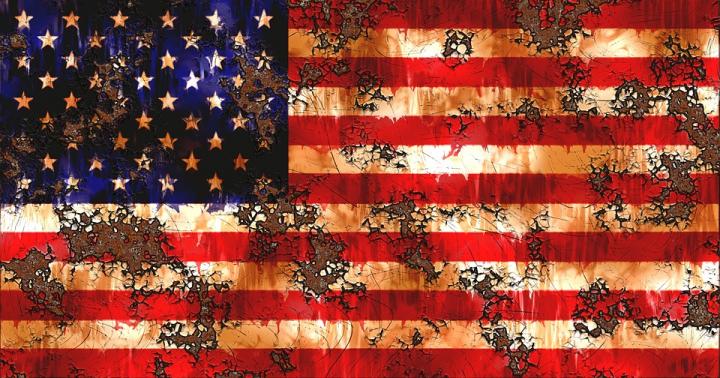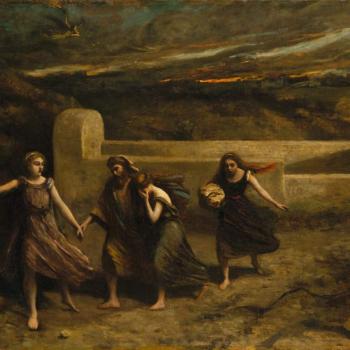
Many in the United States are declaring this upcoming 2016 election to be most important in the history of the United States (and possibly the world). Christian evangelist Franklin Graham has stated that “we’ve got maybe one election left;” while right-wing pundit Glenn Beck warns that “this is your last call, America.” But this sentiment is not just limited to the Right. Journalist Joshua Holland of The Nation writes: “this one [the election] has the potential to be truly pivotal.” But this kind of talk is nothing new, as I can vividly remember how the 2012 election between Mitt Romney and Barack Obama was the very same thing. That being said, I have to admit that there may be some truth to what these gentlemen are saying, although I will contest some of the reasons why.
Now, I do not suggest that this may be the most important election in our history in order to incite fear, for I do believe that regardless of what happens, in the end, all will be well. And not only do I believe that, but I also have hope for the immediate future as there is an awakening of sorts, both here and abroad, both inside and outside of Christianity. What I mean is that, for some, there seems to be a deep yearning for a truly unified and peaceful humanity. However—and unfortunately this is a big “however”—there also seems to be a mass of people, fueled by the trumpeting of a growing number of “leaders,” becoming more and more divided with one another. And as such, tensions are growing . . . and growing rapidly. Based on the current strained relations between blacks and whites, Christians and Muslims, liberals and conservatives, and so many other “groups,” the potential for an all-against-all type of violence is very present in the US.
Because of this, many are on the hunt for scapegoats. And while we all scapegoat one another, those who seem to be doing it the loudest and in front of the largest groups of others are those who aspire to leadership. The Christian Right, primarily those who support the two men who lead the race for the GOP Presidential nomination, namely Donald Trump and Ted Cruz, seem to have focused their scapegoating attention on Muslims and the LGBT-community. The Left is not without their own scapegoats, as our drone program—the very same one that liberals denounced President Bush for—has actually expanded under the current President. In addition, it was only a few short months ago that Democratic presidential candidate Hilary Clinton ambiguously labeled “the Iranians” among her “proudest enemies.”
I don’t say this to then turn around and scapegoat others. Criticizing and accusing are two separate things anyway, as my friend Michael Hardin just aptly pointed out in a Facebook post:
There is a big difference between criticism/critique and accusation. We all use criticism all the time: when we read the ingredients on a product we buy in the store, when we purchase clothing and make sure it doesn’t have flaws, when we disagree (politely) with one another. Criticism is not scapegoating. This distinction is where people get confused. They say ‘you are criticizing so and so and scapegoating them.’ This is incorrect.
When we accuse and scapegoat others, we are doing it in order to place ourselves over and above them. However, when we critique others, we are doing it in order to benefit them and then subsequently, those over whom they have a sphere of influence. At least, that is the goal, but we must always remain diligent in not turning that criticism into accusations that only then serve ourselves.
My goal then, in pointing out the scapegoating being done by others, is not to serve myself, but rather to highlight something that will be crucial in understanding why the US is in such a state of division. You see, for the scapegoating mechanism to really work—for it to focus the civilization’s frenzied all-against-all violence onto a surrogate—the people have to be united. The scapegoating of Muslims, the LGBT-community, and “the Iranians,” though, is not a united effort. The people are at odds. There is no collective accusatory finger pointing anyone’s way. Rather, there is a split, division, and thus, what is quickly becoming chaos.
Now, what I am not saying is that we need to start unifying against an enemy “other.” Au contraire! What I am saying is that we need to get our act together and start looking for supra-status-quo solutions for achieving real, lasting peace. The status-quo way to peace states that we need another victim/s. But true peace will require a higher level of consciousness, where our interdividualism is recognized, acknowledged, and then where radical forgiveness becomes our new reality.
That being said, on our way toward becoming collectively more enlightened to humanity’s oneness, whose true self is derived from the one true God, we may have to engage in the political process. But no matter how we then engage in that process—whether by voting or by other methods—we must do so with empathy in our hearts, and peace on our tongues. Unlike those who act like wolves, seeking to devour others with their words of judgment and condemnation (Matthew 7:1–5), we must engage others as servants who do not lord anything over them (Matthew 20:24–28).
As Americans, we must have empathy for the Mexican people driven from their lands due in large part because of the United States’ war on drugs, and not advocate for a giant wall to keep them trapped in a situation we helped create. We must have empathy for Syrian refugees fleeing their war-torn cities and homes because of a situation, again, we helped create. We must not demonize the LGBT-community and blame them for simply wanting the same rights our culture affords straight people. We must not blame them for when a natural disaster strikes, like Europeans did to theJews when the Black Death hit Europe. And we must certainly not turn to those in “leadership” roles who continue to openly create scapegoats. Those who perpetuate the “us vs. them” mentality only worsen the problem and drive us all further apart. Jesus said, “You will know them by their fruits,” which can certainly be interpreted as “you will know them by their scapegoated victims,” or even, “you will know them by their accusatory fingers.”
It is becoming more and more obvious as to the kind of fruit this 2016 election crop is bearing. With accusations being flung around left and right, and judgment being placed by those in no place to judge, the fruit seems to be spoiling on the vine. Let us hope that this changes before it is too late.













